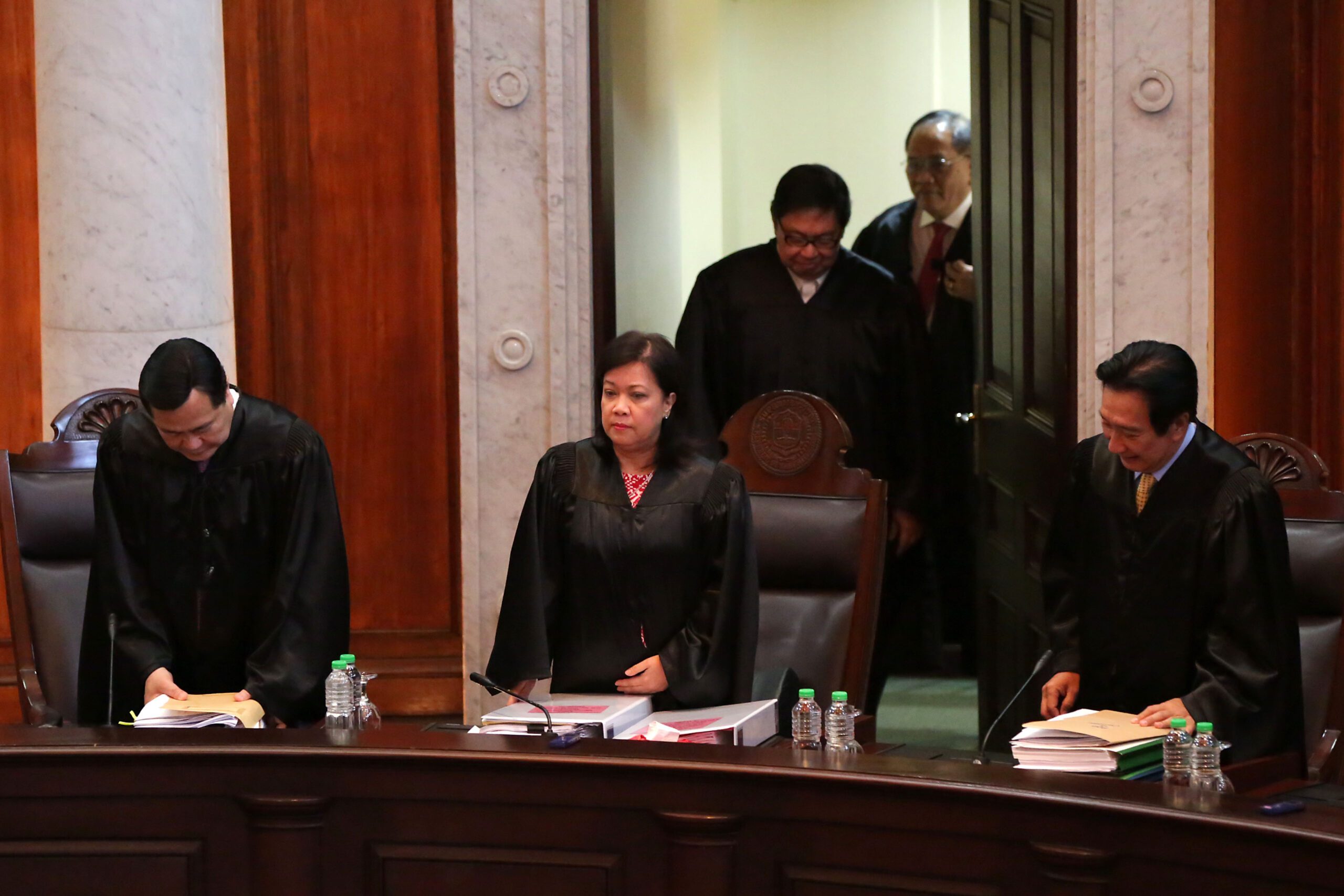SUMMARY
This is AI generated summarization, which may have errors. For context, always refer to the full article.

MANILA, Philippines – Supreme Court Chief Justice Maria Lourdes Sereno on Tuesday, February 2, dismissed the view of the Commission on Elections (Comelec) that Philippine citizenship is only passed on through bloodlines.
This came after Comelec Commissioner Arthur Lim, in discussing the citizenship of presidential bet Senator Grace Poe, repeatedly emphasized that citizenship is only carried through blood, as the country follows the jus sanguinis principle or citizenship by blood.
Sereno, in her interpellation of Lim, said there was no mention of “bloodline” in the Philippine Constitution.
“In fact, you kept on talking about bloodline. Nothing in the Constitution talks about bloodline. Do you see the word ‘blood’?” Sereno asked.
Lim replied, “That is reasonably inferable from jus sanguinis.”
But Sereno was quick to say: “It is important. When you talk about bloodline it connotes a system where you look at the purity of the race, preference for those who have pure blood. The Constitution has never ever said that we are a race or nation of pure-blooded Malays. In the very beginning, that has been the theory on citizenship.”
The concept of bloodline and pure-bloodedness was first used by Solicitor General Florin Hilbay in his comment on Rizalito David’s quo warranto petition against Poe before the Senate Electoral Tribunal.
“One must therefore be similarly mindful of the almost-comical scale with which we are scrutinizing the purity of [Poe’s] blood, as if purity of blood were a standard for capacity to govern – as if our nation belonged to House Slytherin; and this scrutiny assumes an ironic twist when considered against the backdrop of our aggressive attempts to justify the Filipino citizenship of others just so we may, as a nation, improve our athletic or cultural profile,” Hilbay earlier said in his response.
PH not strictly ‘jus sanguinis’
To further prove her point, the chief magistrate cited past court decisions stating that the Philippines is just a “predominating” jus sanguinis country.
Some of the jurisprudence she mentioned were Roa vs Insular Collector of Customs, Torres vs Tan Chim, Talaroc vs Uy, and Tecson vs Comelec. The last case sought to disqualify Fernando Poe Jr (FPJ), Grace Poe’s father, from the 2004 presidential race.
“We are a predominating jus sanguinis country. The word is predominating. In which case, a rigid adherence to the concept of bloodline does not seem conformable on the Supreme Court’s own characterization of what a citizenship is,” Sereno said.
She also argued that the Supreme Court had presumed foundlings to be natural-born Filipinos, contrary to the jus sanguinis principle. (READ: Not natural-born? Foundlings will be deprived of these rights…)
Citing FPJ’s case in 2004, Sereno noted that the High Court presumed FPJ’s grandfather Lorenzo Poe as a natural-born Filipino, despite just having a single proof, which was his death certificate.
“In the absence of any evidence to the contrary, it should be sound to conclude, or at least to presume, that the place of residence of a person at the time of his death was also his residence before death,” Sereno said.
While Poe’s critics argue that the senator has so far failed to prove she is a natural-born Filipino, Sereno, citing past cases, said the High Court could still decide on citizenship matters.
“The dearth of evidence in Tecson [vs Comelec] did not prevent the court from concluding the natural-born status of 3 generations of Poe males,” she said.
She further cited another case, Ellis couple vs Republic, where the SC took jurisdiction over a child left in a hospital. Sereno reiterated that the case against Poe has great implications on thousands of other foundlings. – Rappler.com
Add a comment
How does this make you feel?
There are no comments yet. Add your comment to start the conversation.